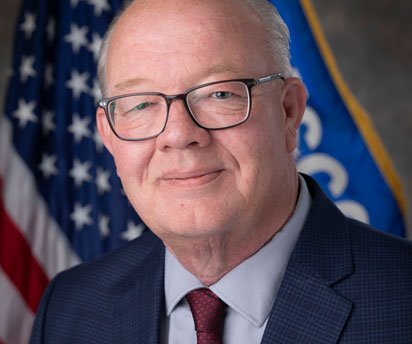President Obama correctly links the future performance of our nation's public schools to our long-term economic well-being. And in his first major speech on education last week, the president proposed some tough but necessary steps to improve our schools.
That's the easy part. The difficulties will come in trying to quantify and measure his goals, and in convincing special interest groups to be held accountable.
"The future belongs to the nation that best educates its citizens," Obama said last Tuesday. "We have everything we need to be that nation ... and yet, despite resources that are unmatched anywhere in the world, we have let our grades slip, our schools crumble, our teacher quality fall short and other nations outpace us."
Sobering, but true. Our national education system has slipped the past few decades, and the ship needs to be righted.
Obama's solutions?
Tying teacher salaries to performance, paying more to those whose students perform well. Teachers with expertise in math and science, where U.S. students have fallen off the most, would receive higher salaries.
Making it easier to pull bad teachers from the classrooms.
Raising standards and setting objective benchmarks that challenge students.
Encouraging the creation of more charter schools by lifting state and city caps on the number of them.
Having longer school days, and keeping students in classrooms for more weeks in the year.
Under Obama's plan, which mirrors what he promised during the presidential campaign, teachers, schools, students and parents would be held accountable for improved performance in the classroom. Accountability and raised expectations are something public schools have been lacking for years, and Obama and Education Secretary Arne Duncan are right to demand it.
In return, the Obama administration committed in its stimulus package an unprecedented amount of money for public schools - double the education budget under President Bush.
There will be resistance, of course, from teachers on merit pay; from parents and school officials on longer school years; from conservatives on the amount of spending. The president's education plan challenges both parties, and everyone involved in education.
It also will be a Herculean task to gather a consensus in defining such things as student and teacher performance without watering down expectations. There will be a significant amount of pushback.
The Obama administration should be applauded for plotting a difficult course for true education reform. It's set high standards for its own performance. Let's hope expectations are met.
That's the easy part. The difficulties will come in trying to quantify and measure his goals, and in convincing special interest groups to be held accountable.
"The future belongs to the nation that best educates its citizens," Obama said last Tuesday. "We have everything we need to be that nation ... and yet, despite resources that are unmatched anywhere in the world, we have let our grades slip, our schools crumble, our teacher quality fall short and other nations outpace us."
Sobering, but true. Our national education system has slipped the past few decades, and the ship needs to be righted.
Obama's solutions?
Tying teacher salaries to performance, paying more to those whose students perform well. Teachers with expertise in math and science, where U.S. students have fallen off the most, would receive higher salaries.
Making it easier to pull bad teachers from the classrooms.
Raising standards and setting objective benchmarks that challenge students.
Encouraging the creation of more charter schools by lifting state and city caps on the number of them.
Having longer school days, and keeping students in classrooms for more weeks in the year.
Under Obama's plan, which mirrors what he promised during the presidential campaign, teachers, schools, students and parents would be held accountable for improved performance in the classroom. Accountability and raised expectations are something public schools have been lacking for years, and Obama and Education Secretary Arne Duncan are right to demand it.
In return, the Obama administration committed in its stimulus package an unprecedented amount of money for public schools - double the education budget under President Bush.
There will be resistance, of course, from teachers on merit pay; from parents and school officials on longer school years; from conservatives on the amount of spending. The president's education plan challenges both parties, and everyone involved in education.
It also will be a Herculean task to gather a consensus in defining such things as student and teacher performance without watering down expectations. There will be a significant amount of pushback.
The Obama administration should be applauded for plotting a difficult course for true education reform. It's set high standards for its own performance. Let's hope expectations are met.





